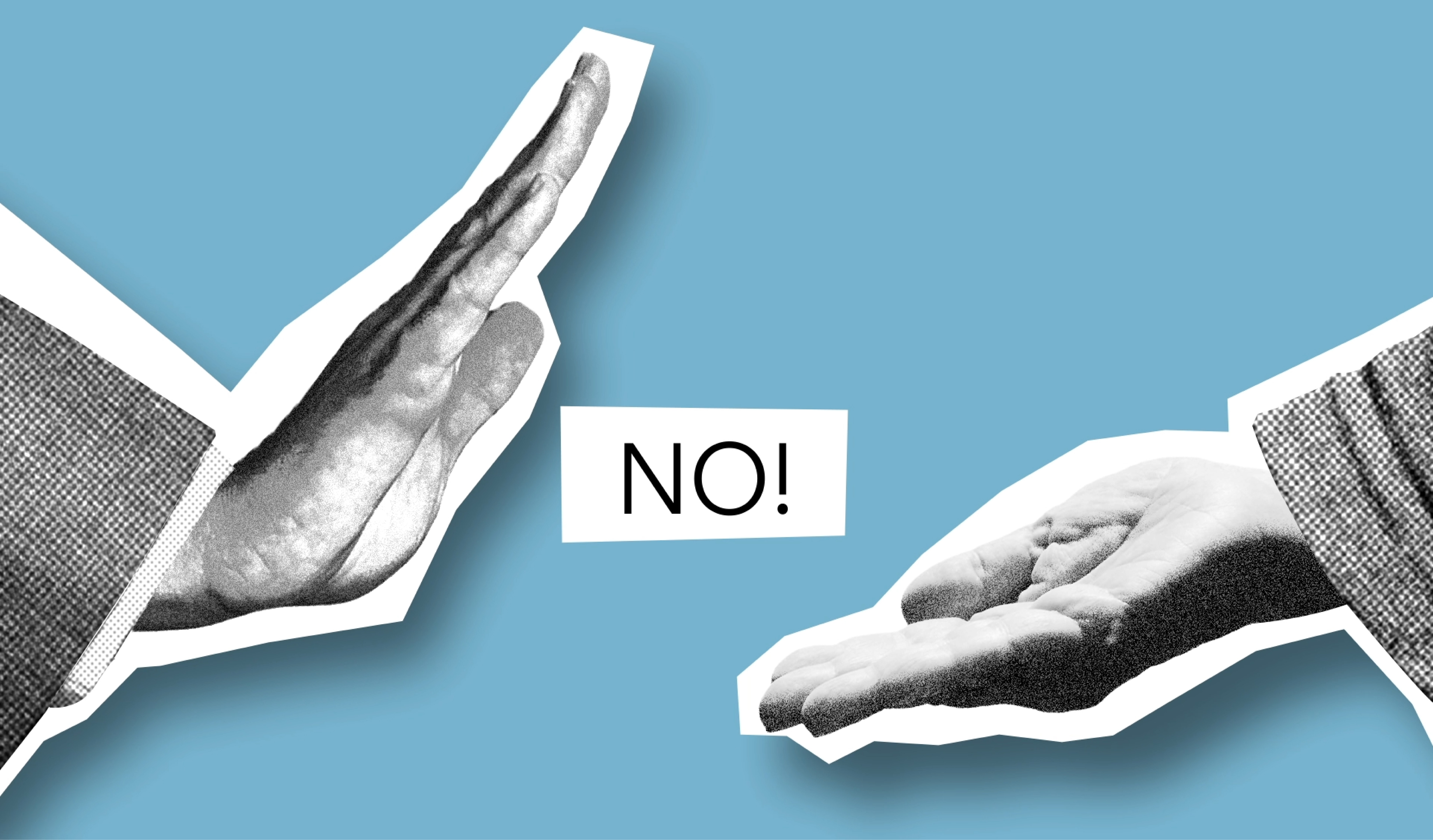March 10, 2022
In a previous blog post, I talked about a polite way to reject candidates and enhance your employer brand. I referenced the case study of Virgin Media and explained their strategy of:
- Making every job applicant to Virgin Media more employable, whether they work for Virgin Media or not
- Giving each applicant an overwhelmingly positive candidate experience.
I also offered tips that were immediately actionable and easy to implement. Click here to read it for yourself.

I was thinking of that post when I stumbled across the following research on Psychology Today.
Rejection piggybacks on physical pain pathways in the brain. fMRI studies show that the same areas of the brain become activated when we experience rejection as when we experience physical pain. This is why rejection hurts so much (neurologically speaking). In fact our brains respond so similarly to rejection and physical pain that…Tylenol reduces the emotional pain rejection elicits. In a study testing the hypothesis that rejection mimics physical pain, researchers gave some participants acetaminophen (Tylenol) before asking them to recall a painful rejection experience. The people who received Tylenol reported significantly less emotional pain than subjects who took a sugar pill.
Rejection destabilizes our "need to belong." We all have a fundamental need to belong to a group. When we get rejected, this need becomes destabilized and the disconnection we feel adds to our emotional pain.
Rejection creates surges of anger and aggression. In 2001, the Surgeon General of the U.S. issued a report stating that rejection was a greater risk for adolescent violence than drugs, poverty, or gang membership. Countless studies have demonstrated that even mild rejections lead people to take out their aggression on innocent bystanders.
Physical pain.
Emotional pain.
A sense of loneliness.
A surge of anger.

All of these are some, not all, of the symptoms of rejection. This explains why job hunting is such an ordeal for many, even passive candidates who are open to new opportunities. I think it is important to recognize these feelings because of another psychological term - transference. Here is a definition from Psychology Today.
Transference is a phenomenon in which one seems to direct feelings or desires related to an important figure in one’s life—such as a parent—toward someone who is not that person.
I am not a psychologist but, I am wondering the possibilities of job applicants associating all the negative feelings of rejection onto the company who did not hire them. How would that affect profits in the long-term of the company? How would that affect recruiting as rejected candidates vent their frustrations with their peers and on social media?
I think there is a simple way to counterbalance the potential harm to your employer brand from rejected job applicants. I think its all about letting them down as gently as possible. Consider the template below.
Joseph,Thank you for thinking of us.Seriously.Thank you for pursuing an opportunity here at Proactive Talent. We appreciate your time and consideration; however, we have filled the position with another candidate. Although we may not be working together today, who knows what will happen in the future? Please do not take this rejection too personally as there are many successful people who have endured rejection in their past. To name a few...
- Walt Disney was fired from a local newspaper because he "lacked imagination and no good ideas."
- Steven Spielberg was rejected from the University of Southern California School of Theater, Film and Television - 3 times.
- Stephen King's first novel, Carrie, was rejected 30 times before it was published
- After just one performance, Elvis Presley was fired by Jimmy Denny, the manager at the Grand Ole Opry.
- J.K. Rowling was rejected by about 12 different publishers.
Do you think any of them thought any more about the rejections they endured once they made it big? I doubt it. They were all famous failures, and it is our sincerest wish that you become a "famous failure" just like them. Until then, keep applying and one day we may have the distinction of saying we knew you when.Sincerely,JimP.S. In the interim, click here for a free eBook of job search strategies. We hope it proves useful.
Hopefully, you noticed the intent and purposes of the email above.
- No one MUST work for any specific company as there are a LOT of options in this Great Resignation era. I wanted them know that I am genuinely grateful for their consideration and the time it took to apply and/or interview.
- By asking them to not take the rejection too personally, I am acknowledging their pain. Why? I do not know how their day is going or where they are in their search. My rejecting them could be a minor annoyance or the final straw before doing something rash. Either way, it never hurts to let people know that you see them.
- I list several "famous failures" as a form of encouragement for them and humility on my part. Maybe I read the interview wrong, and I am dismissing a perfect hire. I may look back in regret and I want them to know that I own that.
- Finally, I give a digital gift that I hope truly helps them. Ideally, it will assuage some of the pain of rejection and endear my company to them a bit more.
I would be curious to know if your company follows a similar tact with how they reject candidates. Leave a comment below. Please and thank you. And, if you happen to need assistance regarding your employer brand, click the contact us button below and start a conversation with us. Please and thank you.
Comments



